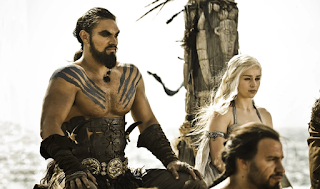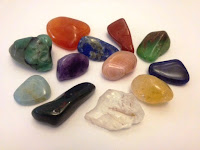Game of Thrones and the Subversion of Fantasy Tropes
When we talk about fantasy, we usually talk about knights, dragons, princesses, fire-swords, wizards and witches, and the like. But when we talk about Game of Thrones we usually don't talk about those things. At least not in the way that we would talk about them concerning almost any other fantasy story. Now, Game of Thrones certainly has dragons, knights, princesses, fire-swords, witches and the like, but they are nothing like the kind we see in most other fantasy. Excepts dragons. Dragons are always just badass. And fire-swords. But the point is that one of the things Game of Thrones has always done so well is underplay its own genre with shocking realism. And that becomes even more apparent when we compare Game of Thrones and The Lord of the Rings. LotR has pure-white heroes and pure-dark villains. It sets good and evil far apart with no in-between. For example, there is no point in LotR where Aragorn or Frodo question whether they are really fighting for the right side. None of the main heroes are faced with moral dilemmas or difficult ethical questions. And that's not a bad thing. LotR presents us with an ultimate truth, the ideals of good and evil and how they utterly oppose each other. But the line is drawn very clearly. In contrast, Game of Thrones has got lines everywhere on the good-evil spectrum. Every character is faced with moral dilemmas to which there is no right answer. Every character (except Ramsay and Joffery, those a-holes) have good and evil within them. Every character struggles and suffers, every character deals with ethical issues and every character makes bad decisions. It's much more like real life, and it tells us a more detailed truth about our own world. Similar to the characters in Game of Thrones, we are all incredibly complex and troubled people. We all have good and evil within us, and we all face moral dilemmas every day. The line between good and evil can often be much harder to discern in real life, and most everyone falls somewhere in between. This obscurity of good and evil is often why characters in Game of Thrones suffer the way they do and gives us a shocking dose of realism to go along with the fantasy elements of George RR Martin's story. He has always taken the tropes of fantasy, like shining knights winning the day, and flipped them on their heads. In Game of Thrones, the good guys rarely win, if we can even call them good. This is just a brief overview and I know that it was all over the place but it is one of the things that I find very interesting and very compelling about Game of Thrones. Examining these themes has also led me to believe that the White Walkers will turn out to be the good guys and that the humans are actually the bad guys. Don't believe me? Leave a comment down below.



I'm not a Game of Thrones fan, though that is more from just having not seen it rather than any actual dislike of the series. However, from what I have seen, Game of Thrones does do a good job of throwing the traditional story tropes of the fantasy genre into a more realistic lens and taking a look at what they would be like in a setting closer to real life. I do have to disagree about there being no good guys though. Though, that might just be due to how early it is in the story for me. Regardless, I do think there are at least a couple of characters besides the two that you mentioned who are irredeemable, and a few who seem, at least currently, to be upright and noble traditional heroes.
ReplyDelete